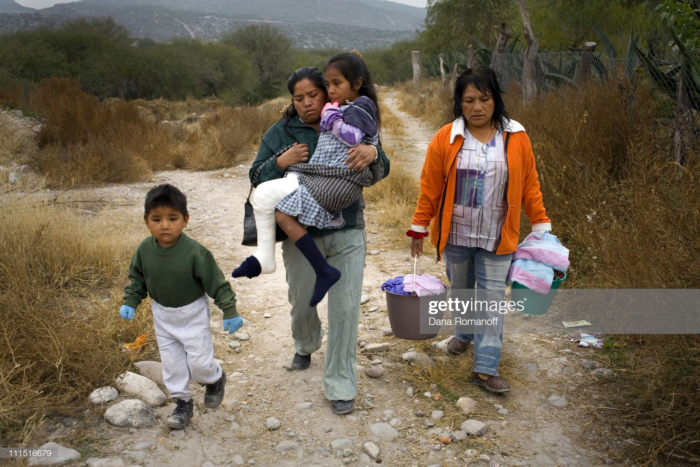Poverty Trap: Child Labourers in Mexico

gettyimages/Dana Romanoff
by Lucy Little
As I frantically wrote my application to become a language assistant with British Council in Mexico, I rambled on about Frida Kahlo, the film Roma, the food. As I got further along in the application process I started to realise how much I didn’t know about Mexico. The next few months passed quickly and suddenly I was in this incredible country where I was immersed in conversations about colonisation, the ongoing drugs war, and the new president Andres Manuel Lopez Obrador commonly known as AMLO. All things which, I am ashamed to say, I know very little about. I believe that as a resident in a country or even as a visitor, we have a responsibility to be culturally aware, we shouldn’t pick and choose the aspects of a culture that appeal to us. So, I started to educate myself, I asked questions, I read the news, I dived deeper into the issues that are affecting Mexico today.
One subject area that particularly intrigued and shocked me was that of child labour. According to a study by the National Autonomous University of Mexico, there are upwards of 3.6 million children working in Mexico. Many items regularly consumed by the Mexican population and also many exported products, such as tobacco, chillies, avocados and sugar cane are largely manufactured by child labourers.
Child labour is of course intrinsically linked with poverty, which tends to be more prevelant in states such as Chiapas, Guerrero, Puebla, Oaxaca and Michoacan. Chiapas has the highest poverty rate in the country; 74.7% of the state is living in poverty, 46.7% of whom are living in extreme poverty, in a study done by Harvard. The vast majority of workers, both children and adults, are of indigenous descent, such as Mixtec, Huichol, and Tepehuan.
In many circumstances, the children accompany their parents to work out of necessity, their parents need the extra help, though most children will come away with less than a pound from a full days work, typically around 10 hours. Legally, in Mexico, a working day for a child under 16 should not exceed 6 hours a day. For a large number of families, it is impossible to send their children to school as they must move around to different states to follow the harvest. However, even for families with a fixed abode, working the fields often seems like a more appealing option. This is due to the unsurprisingly lower quality of education within these impoverished states. Furthermore, children living in households associated with agrarian work do not see the benefits of an education as it seems to them they are trapped within this inevitable, inherited future.
Machismo underpins almost all aspects of Mexican society and child labour is no different; due to the ‘traditional household roles’ that Mexican girls still hold. They are constantly exceeding healthy working hours, returning from an exhausting day in the fields to complete household chores and care for children.
Sub-par working conditions, insufficient time to rest and a poor diet due to a low income, of course affect health in young labourers. In the sugar cane industry, the plant is burnt to facilitate production which produces a huge amount of pollution and contributes to poor respiratory health in labourers. Indigenous people have access to a much worse level of public healthcare due to their rural locations. It is also worth noting that many indigenous groups do not speak Spanish, making a lot of healthcare inaccessible to them. According to the United Nations, infant mortality is 50 percent higher in indigenous children than non-indigenous, and death due to preventable diseases is 181% higher in rural areas with a higher percentage of indigenous communities.
Launched in 1997, the programme Prospera provided conditional cash transfers to struggling families, the conditions were that the children must be in school, they must meet nutritional standards and have regular health check ups. This programme at first seemed monumental in keeping young children in education and giving hope to vulnerable families and communities and was replicated in other countries. However, the programme has come under scrutiny due to it ‘controlling’ lower income families, sanctioning them heavily. Mothers were forced to comply with conditions they had not originally agreed to and were spending a huge amount of time on the programme for fear of losing the grant. Andres Manuel Lopez Obrador, the president, has consequently abolished the programme, promising a better and more inclusive future for the marginalised members of Mexican society. AMLO has said that facing social inequality, particularly in poorer states is an absolute priority for his government. One can only hope that in the midst of Mexico’s political troubles that this will not be a false promise.
Lucy Little, 3rd Year BA French and Spanish Undergraduate. Current British Council language assistant in Merida, Mexico.
